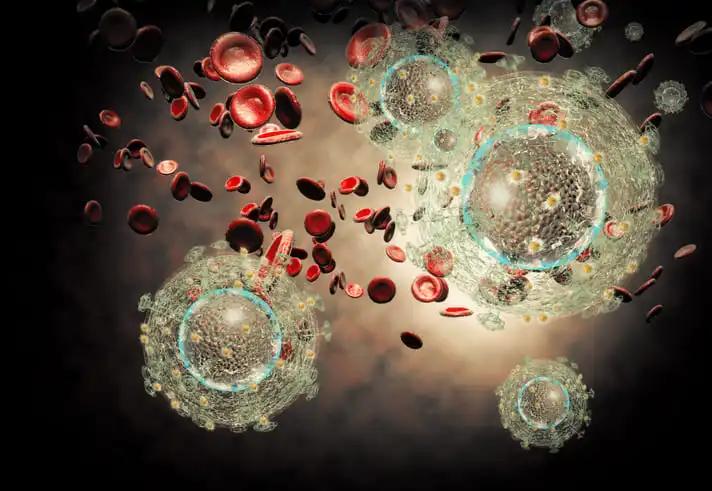KEY TAKEAWAYS
- The phase 3 CheckMate 577 study assessed biomarkers in resected EC/GEJC patients treated with adjuvant nivolumab vs placebo.
- WES and RNA sequencing was performed to evaluate MSI, TMB, gene expression signatures, and select gene mutations.
- The study revealed that adjuvant nivolumab showed improved DFS than placebo in pts with resected EC/GEJC, irrespective of mutational status or gene expression signatures.
In the phase 3 CheckMate 577 study, adjuvant nivolumab showed significant improvement in disease-free survival (DFS) compared to placebo, along with an acceptable safety profile, in patients (pts) with resected esophageal or gastroesophageal junction cancer (EC/GEJC) who underwent neoadjuvant chemoradiotherapy (CRT). The researchers presented novel exploratory biomarker analyses based on the Checkmate 577 study. They conducted whole exome sequencing (WES) on baseline tumor tissue and matching blood samples to evaluate microsatellite instability (MSI), tumor mutational burden (TMB), and specific gene mutations. TMB-high (TMB-H) was defined as having greater than or equal to 199 mutations per exome. Additionally, RNA sequencing was performed on baseline tumor tissue to analyze gene expression signatures (GES) related to 4-gene inflammatory, 44-gene proliferation, 3-gene M2 macrophage, 5-gene endothelial, and 15-gene fibroblast signatures. GES subgroups were classified based on tertiles of signature scores.
A total of 794 pts were randomized to receive nivolumab or placebo, and the Nivolumab DFS hazard ratio (HR) was 0.68 (95% confidence interval [CI], 0.56–0.83), compared to placebo. Of 374 pts evaluated for WES, 5 had high MSI (MSI-H), and 13 had high TMB (TMB-H). Pts with MSI-H had had high TMB and adenocarcinoma. Nivolumab provided DFS benefit regardless of the mutational status of specific genes, including NOTCH1, PIK3CA, CDKN2A, and ARID1A. Among 376 pts evaluated for GES (nivolumab 46%, placebo 50%), unstratified HR for the DFS was 0.84 (95% CI, 0.63–1.11). The different GES subgroups were divided into three distinctive tertiles: high (n = 126; 34%), medium (n = 125; 33%), or low (n = 125; 33%). The multiple subgroups demonstrated enhanced DFS benefit with nivolumab than placebo (unstratified HR [95% CI]), including those with higher expression of inflammatory (high 0.75 [0.44–1.28]; medium 0.74 [0.46–1.21]; low 1.04 [0.65–1.68]) and proliferation (high 0.66 [0.41–1.09]; medium 0.71 [0.44–1.15]; low 1.27 [0.75–2.15]) endothelial (high 1.16 [0.68–1.99]; medium 1.07 [0.66–1.74]; low 0.46 [0.28–0.76]), GES and lower expression of M2 macrophage (high 1.34 [0.76–2.35]; medium 0.70 [0.44–1.13]; low 0.67 [0.40–1.10]), and fibroblast (high 1.07 [0.64–1.77]; medium 1.10 [0.67–1.82]; low 0.51 [0.31–0.85]) GES. The study concluded that the biomarker findings reinforce the efficacy of adjuvant nivolumab compared to placebo, highlighting improved DFS across various subgroups, with the need for further validation in future trials.
Source: https://www.annalsofoncology.org/article/S0923-7534(23)00164-3/fulltext
Clinical Trial : https://classic.clinicaltrials.gov/ct2/show/NCT02743494
R. Kelly, M. Moehler, J. Ajani, J. Yao, J. Kuzdzal, T. Zander, E. Van Cutsem, G. Piessen, G. Mendez, J. Feliciano, S. Motoyama, A. Lièvre, H. Uronis, E. Elimova, C. Grootscholten, K. Geboes, Y. Yang, J. Zhang, R. Novosiadly, J. Cleary, M. Lei (DOI:https://doi.org/10.1016/j.annonc.2023.04.022)



